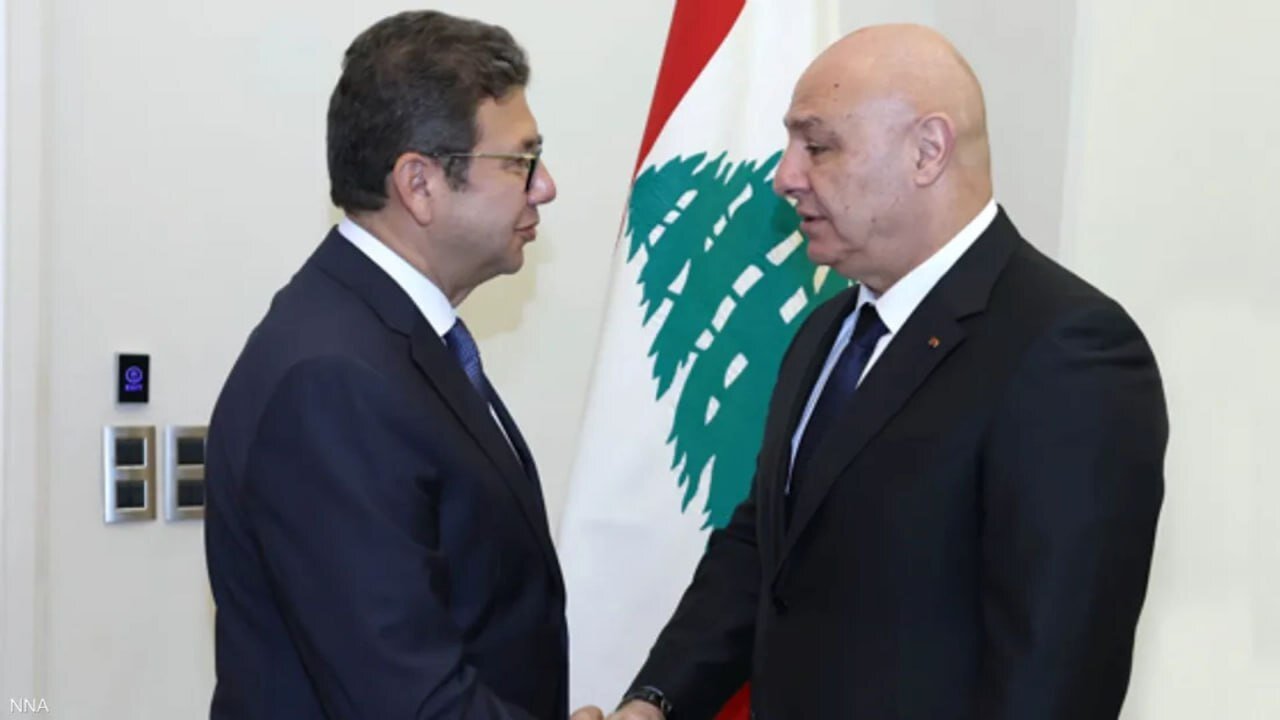
BEIRUT — The so-called initiative presented by Egypt’s head of general intelligence agency, Major General Hassan Rashad, has been framed as an Arab-international attempt to stabilize southern Lebanon.
Yet a closer reading reveals a different intent: rather than restoring balance, it deepens Lebanon’s dependency on external powers, with its most dangerous feature being the effort to detach Hezbollah from the Axis of Resistance.
The proposed plan includes several key provisions: establishing a ceasefire in exchange for the Israeli enemy’s withdrawal from five occupied border points; obliging Hezbollah to suspend military activity south of the Litani River; creating an Arab-Turkish negotiation mechanism to oversee implementation under Arab-Islamic field supervision; and linking the Israeli enemy’s withdrawal to discussions about Hezbollah’s weapons north of the Litani. It also calls for comprehensive border demarcation and Egyptian mediation with Syria over the Shebaa Farms.
Furthermore, the initiative proposes monitoring and funding mechanisms designed to disrupt Hezbollah’s logistical and arms networks, while designating Iran and Yemen as actors to be politically, economically, and security-wise isolated from Hezbollah.
Hezbollah’s response came swiftly through an open letter addressed to Lebanon’s president, prime minister and parliament speaker, drawing red lines that reaffirmed three issues: adherence to the ceasefire agreement of November 27, 2024; categorical rejection of any direct or indirect negotiations with the Israeli enemy as long as it continues violating that agreement; and opposition to any unilateral measures that could undermine the Resistance’s deterrent capability.
Hezbollah’s letter’s content centres on two core principles: first, that the legitimacy of the Resistance’s weapons stems from an existential threat defined by the ongoing aggression and occupation; second, that any “solution” failing to ensure a full and unconditional withdrawal by the Israeli occupiers under enforceable international guarantees amounts to a political concession that would gravely endanger national security.
Adding to the tension was the visit of Ahmad Al-Sharaa (Abu Mohammad Al-Julani), Syria’s de facto ruler, to Washington — a move that triggered unease in both Lebanese and regional circles.
Diplomatic signals suggest the visit was more than a symbolic gesture: it embodied Washington’s intent to expand its influence within the Syrian theatre and to integrate this strategy into its broader confrontation with the Axis of Resistance.
The visit carried alarming implications: intensifying political and operational pressure on Resistance movements in Lebanon and Palestine, and forming new pressure fronts designed to weaken Hezbollah’s independent deterrent capacity.
Within this context, talk of a U.S. military base in al-Mezzeh takes on significance. If established or reinforced, such a base would not be a mere observation post but rather a tactical pressure, linking intelligence and political objectives to mechanisms that can target funding networks, disrupt security alignments, and prepare the ground for guided interventions.
Equally concerning is how such narratives are used to define “counter-terrorism” frameworks that Washington defines unilaterally, branding Hezbollah under its own legal terms and employing that designation as a cover for financial, military, and diplomatic coercion.
Hence, the central danger of the Egyptian initiative — and of the concurrent regional moves surrounding it — lies in their ultimate goal: not neutralizing conflict but dismantling the connective tissue of the Axis of Resistance.
The initiative aims to sever Lebanon’s political and logistical ties with Tehran, Sanaa, Gaza, and the West Bank — a separation pursued through both rhetoric and concrete measures: financial restrictions, supply-line closures, pressure on domestic political actors, and the offer of economic incentives in exchange for strategic concessions.
Given the Axis of Resistance’s resilient and historically embedded networks, such attempts are likely to provoke multifaceted counter-responses — including efforts to undermine domestic legitimacy, mobilize political polarization, and potentially trigger limited or wide-scale escalation should deterrence be perceived as compromised.
The foreseeable outcome is deeper internal fragmentation: one camp submitting to foreign dictates, and another insisting on the sovereign right to defend. This fracture risks igniting political and social instability across Lebanon.
Ultimately, the Egyptian initiative appears to be an American–Israeli project dressed in Egyptian diplomatic attire — a hybrid of mediation and pressure that places Lebanon at a crossroads: either turn inward to safeguard sovereignty and resist externally imposed “solutions,” or slide further into dependency, eroding national authority and compounding security volatility.
A genuine resolution must rest on enforceable international guarantees, transparent accountability mechanisms, and — above all — a domestic consensus shaped by serious Lebanese dialogue, not external imposition.
Disclaimer : This story is auto aggregated by a computer programme and has not been created or edited by DOWNTHENEWS. Publisher: tehrantimes.com





